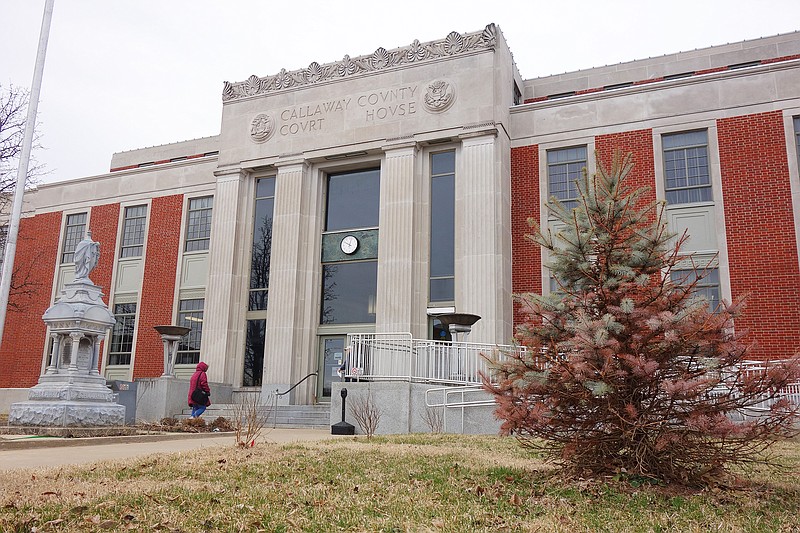A new federal grant will help Callaway County vastly expand its family treatment court program.
County commissioners and members of the 13th Circuit on Friday announced the receipt of a five-year, approximately $2 million grant aimed at helping more families reunite.
"It's for people that are going to lose their children based on drug-related activity," Presiding Commissioner Gary Jungermann said. "Parents will be put into treatment and hopefully pass or get through that so they can be reunited with their children. It's a way to hopefully keep kids from being in foster care for extended periods of time."
FTCs are court-supervised, treatment-based programs for abuse and neglect cases.
The Callaway County Family Treatment Court's first docket took place in May 2017, according to the 2018 annual program report. In 2018, 30 cases were referred to the program, of which 20 were denied. Of the remainder, two were admitted and eight remained pending by the end of 2018.
Two program participants graduated that year.
"Generally, these cases are coming from family court," explained Mary Epping, court administrator. "Under the model we were originally using, a criminal case was required (in addition to a juvenile abuse/neglect case). I think we were surprised at the number of cases didn't have an accompanying criminal case. With this grant, we just need the family court case."
The grant, written by deputy court administrator Cindy Garrett, provides funding for up to 35 program admissions per year, as opposed to the current 10.
In fiscal year 2017, some 241 Callawegians were admitted for treatment for substance abuse disorders, Garrett said. Between 2016-18, Children's Division removed 161 Callaway County children from their homes due to their caretaker's substance abuse.
"It's certainly a need," Epping said, adding family treatment courts aren't as common in Missouri as things like veteran and drug courts.
Jungermann said the grant also provides partial funding for the treatment itself, plus training, supplies and a salary for an administrator. The grant fully funds the program for five years - no need for the county to put in a matching amount.
"We're just getting started and are in our first year (of the grant, which began June 1)," he said. "We've started ordering computers and putting out a job listing. Someone will be hired to run the program and keep up with the families and how things are going."
He described the grant as a "tough one to go after" and said most counties with a family treatment court take over the program once the grant runs out.
According to the 2018 report, the philosophy of the FTC is that working with parents is in the best interest of their children.
"It's really focusing on the treatment needs of the family," Epping said.
Participants receive treatment; counseling; parenting classes and, in some cases, housing. It takes parents 14-24 months to complete the program, depending on their progress.
Current partners in the treatment court are numerous: law enforcement, William Woods University, Westminster College, the court system, Family Counseling Center and charities including CARDV, Faith Maternity Care and Center for Women's Ministry.
Participants must obtain and maintain employment or involvement in educational or vocational programs. They're also encouraged to attend 12-step meetings. They have regular court appearances in the Juvenile Court and before the treatment commissioner, undergo random drug testing, attend counseling and family support team meetings, and remain involved in their children's lives through visits.
Garrett said the program will partner with an agency to provide up to three supervised visits between parents and children; currently parents on supervised visitation only get to see their children once per week. There are also plans to start a peer-support group.
She hopes the expansion of this court and the hiring of a new service coordinator will help take some pressure off children's division; its staff currently juggle 30-35 cases each at a time, she said.
"There's going to be an effort made here to get (participants) treated and back with their kids as soon as possible," Jungermann said. "We think it's going to be a great plan."

